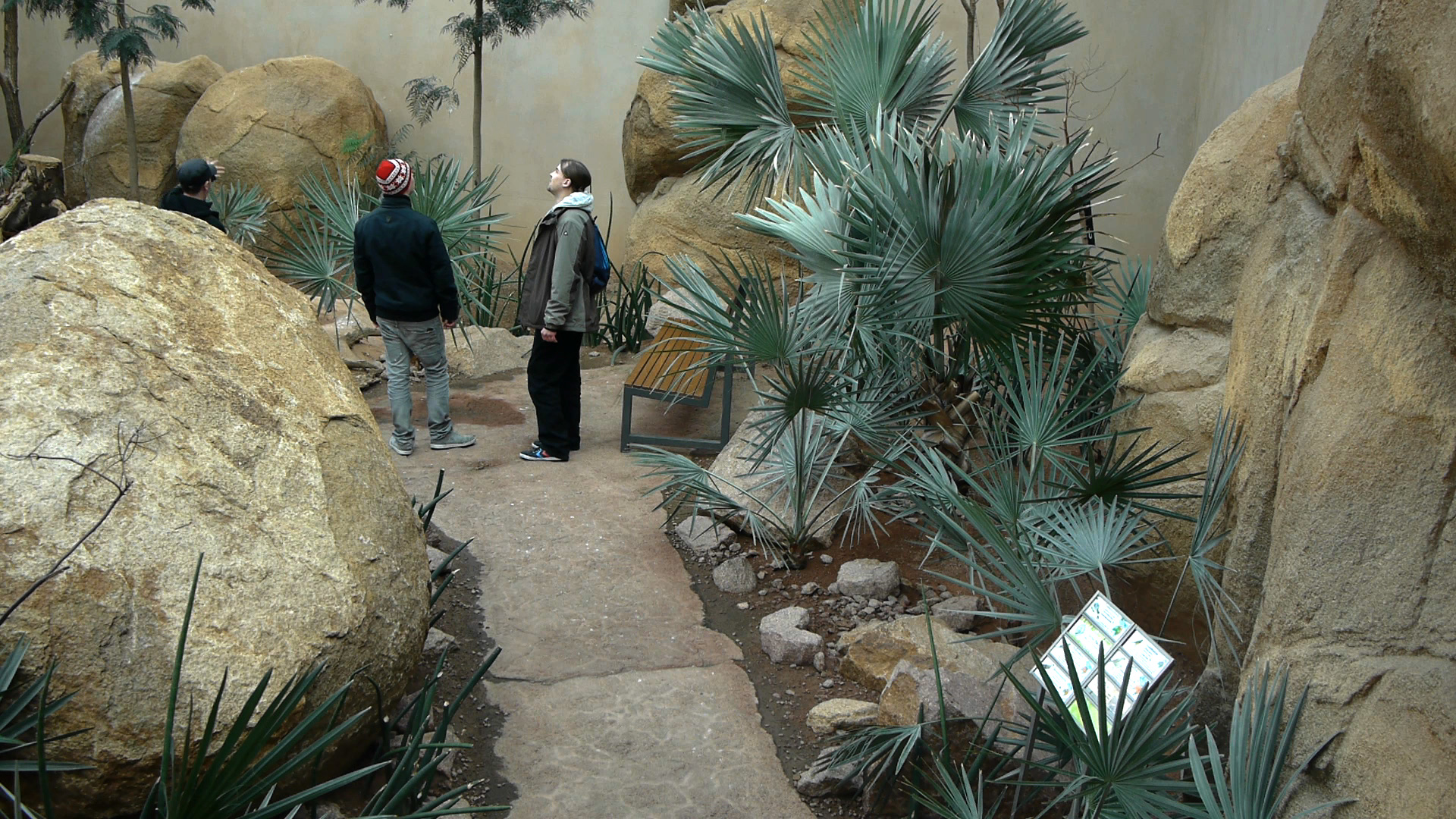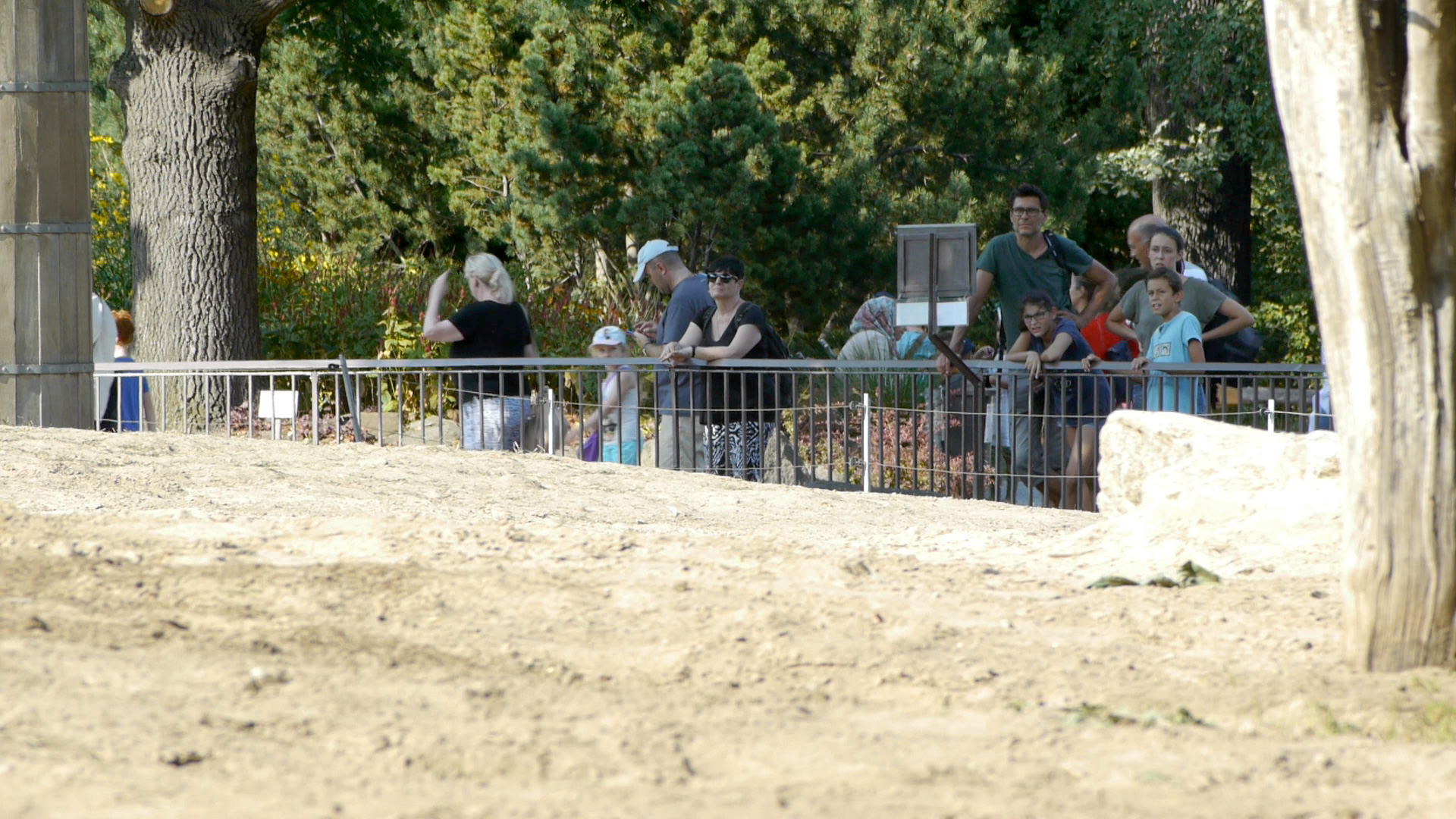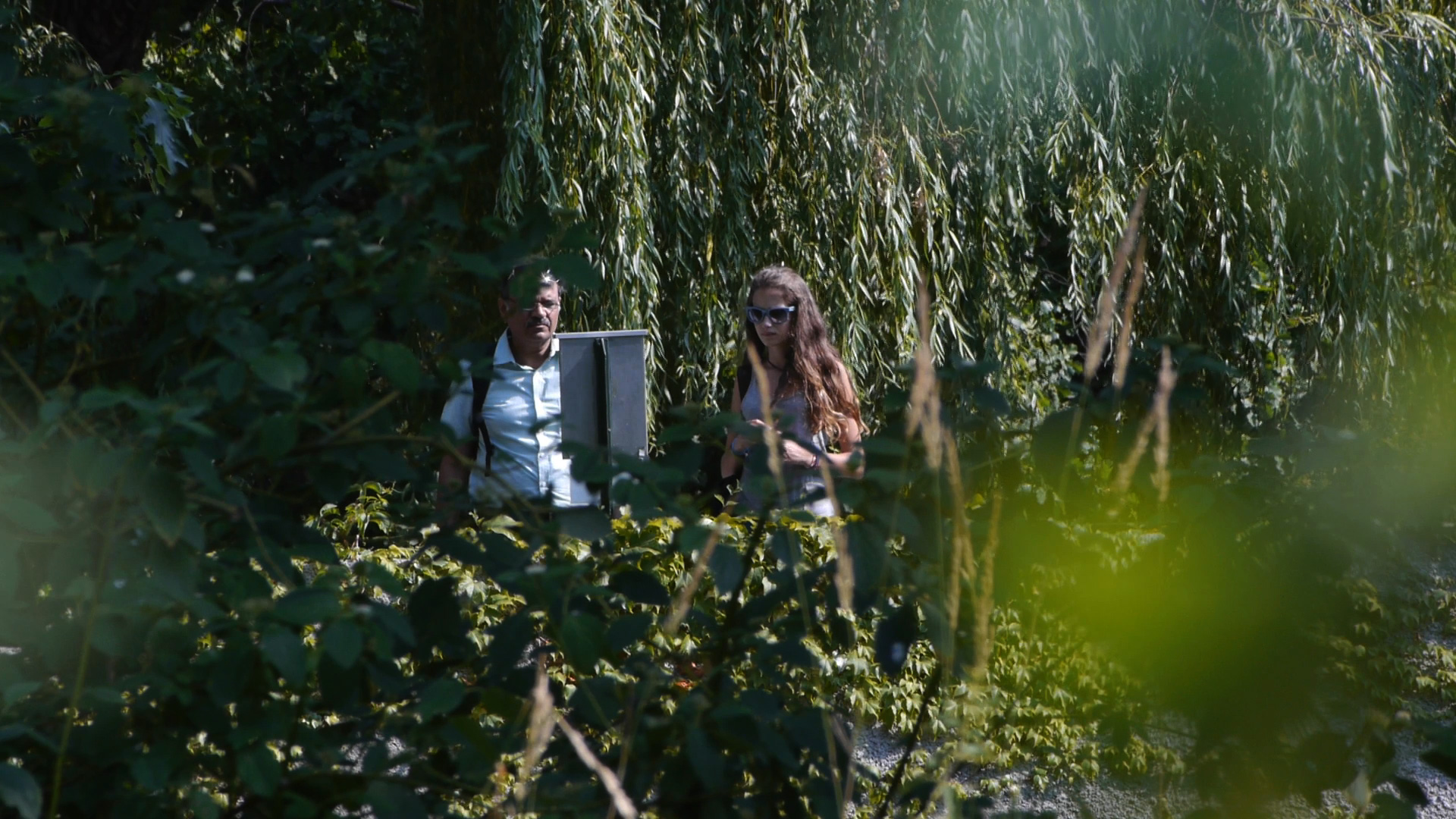LOCATION: Performance area for display and gazing
FIELD DATES: 29 Dec 2014 – 31 Jan 2016
PROCESSING: ongoing
RESULT: Visual compendium, expedition report, series of playback experiments
Over the course of one year we have gathered longterm video-recordings of roaming humans and displayed animals in Berlin Zoo, which is the oldest German institution of its kind. The setting “zoo” focuses prototypically on central aspects of the human posture towards non-human animals but also within human society itself: the distribution of participation, the access to and development of capabilities and the effects of shared narratives and agreements.
The zoo’s phenomenology itself carries both historical and current information on human positions. Here, the viewing-direction towards co-animals is visibly manifest in space and embedded in the overall concept of management and application for use. Therefore the tool of the camera is directed at us the humans, the other animals are mostly absent from the recordings.
The study produced a visual compendium and consists of three chapters – ‘Looking In’, ‘Looking Out’ and ‘Safari’. It aims to explore and evaluate the process of viewing as a significant marker of human interests and intentions.
“The great advantage we have when studying such animals is that we ourselves are not black-footed squirrels – a fact which forces us into an attitude of humility that is becoming to proper scientific investigation. How different things are, how depressingly different, when we attempt to study the human animal. We can try to overcome this to some extent by deliberately and rather coyly approaching the human being as if he were another species, a strange form of life on the dissecting table, awaiting analysis. How can we begin?”
Desmond Morris, The Naked Ape, p. 14
“Diese Art der Reduktion, dieser Typ der Abstraktion als Methode der Theoriebildung ließe sich allenfalls rechtfertigen, wenn sie unzweideutig zu einer Erhellung und Vertiefung des Verständnisses führen würde, das Menschen für sich selbst als Gesellschaften und Individuen haben. Statt dessen findet man, daß Theorien, die mit Hilfe solcher Denkmethoden gebildet werden, wie die Epizykelntheorie des Ptolemäus, unnötig komplizierte Hilfskonstruktionen erforderlich machen, um sie mit den empirisch feststellbaren Fakten in Einklang zu bringen.”
Norbert Elias, Über den Prozeß der Zivilisation, Erster Band, S. XVII
EXPEDITION REPORT published in “Bestiarium. Human and Animal Representations” at Mimesis International
 Experiment No. 2: Decoy Ducks; University of Verona, 2016
Experiment No. 2: Decoy Ducks; University of Verona, 2016
 Decoy Ducks as data objects for plug and play
Decoy Ducks as data objects for plug and play




